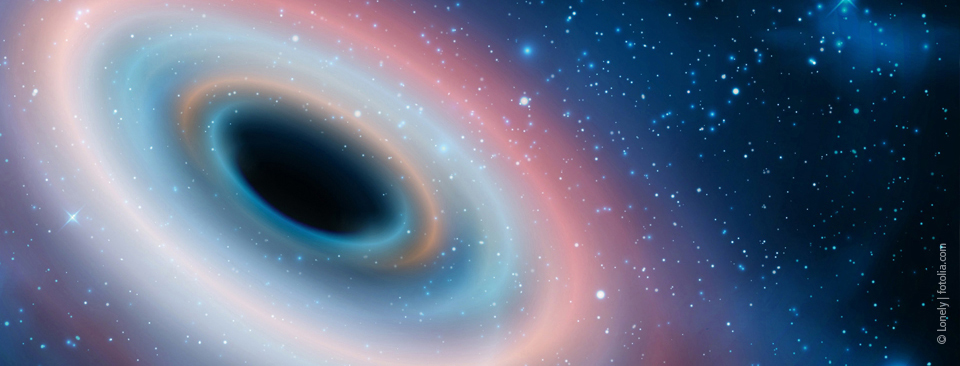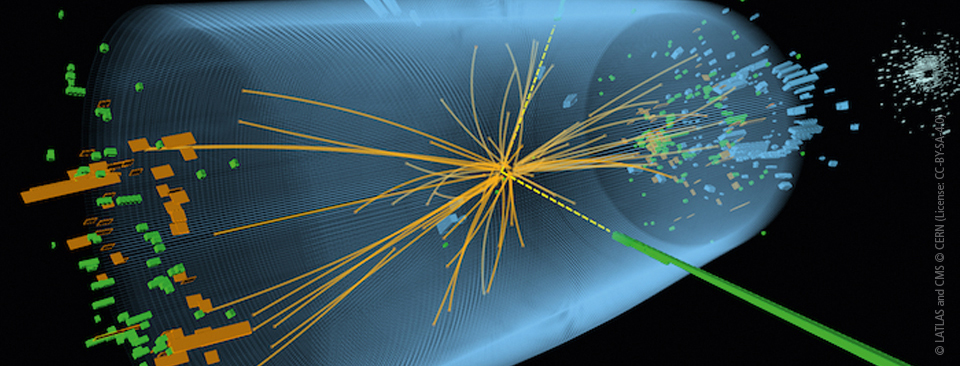
BCGS summer school for Bachelor students
The Bonn-Cologne Summer School in Physics 2016 covers three of the most fascinating topics in contemporary physics: black holes and dark energy, the quest for new elementary particles, and the mysteries of quantum mechanics. It is an opportunity for Bachelor students to come into contact with current research topics early on.
This summer school for will take place in Bad Honnef, close to both Bonn and Cologne, from August 22-26 2016. The school is open to all Bachelor students of physics. It is directed in particular towards students at the end of their second year of studies (expecting to graduate in 2017). Accommodation is in the scenic castle housing the Physikzentrum. The summer school comprises three workshops (you can attend all of them), as well as visits to the Bonn and Cologne physics departments.
The Bonn-Cologne Graduate School for Physics and Astronomy (BCGS) is the joint graduate school of the physics departments of Bonn and Cologne university. The BCGS brings together the opportunities and resources of two leading research universities. It is funded by the German Research Foundation DFG under the „Exzellenzinitiative“ and attracts physics students from all over the world. Language of instruction is English. We provide scholarships and travel funds, internships and a wide range of lecture courses for MSc. and PhD students enrolled in Bonn and Cologne, and organise the Bonn-Cologne Summer School in Physics.

1. From black holes to dark energy: unveiling the wildest regions in the universe with X-ray space telescopes
Thomas Reiprich | Florian Pacaud (Argelander-Institut für Astronomie (AIfA)
Thomas Tauris (AIfa & Max-Planck-Institute for Radio Astronomy)
X-rays are a highly energetic component of the radiation emitted by celestial objects. As such, they are unique witnesses of some of the most extreme events in the Universe. In this workshop we will explain how such high energy photons are produced and how they can be observed with X-ray space telescopes. Then two advanced topics will be covered
in more detail:
1) We will review the formation and evolution of X-ray binaries, combining theory and observations. In particular, we will discuss the recycling process of binary neutron stars via accretion of mass and angular momentum. Finally, we will outline measurements of black hole spins and gravitational waves from merging compact objects.
2) We will describe the formation of and astrophysical processes at play in galaxy clusters, the most massive isolated structures of the Universe. Focusing on large-scale extragalactic X-ray surveys, we will explain how they can be used to gain insights on the main constituents of our Universe, in particular the mysterious dark matter and dark energy.
It is currently planned that the workshop will conclude with a short practical work using real X-ray satellite data.

2. Challenging the standard model
Klaus Desch | Philip Bechtle (Physikalisches Institut, U Bonn)
The workshop will deal with the search for new phenomena beyond the Standard Model of particle physics using the data of the world´s highest energy particle collider, LHC at CERN near Geneva. Now, that a Higgs Boson has been found which suggests the completion of the Standard Model, the foremost task of the LHC experiments ATLAS and CMS is to find
deviations from the model predictions be it through the observation of new particles or through deviations of the properties of the Higgs boson and other SM particles. The workshop will consist of a mixture of introductory lectures, talks on specialized topics (e.g. statistical methods, high-tech detectors) and some hands-on work using real data
from the ATLAS experiment.

3. Quantum information: from true randomness to quantum computers
David Gross | University of Cologne | Institute for Theoretical Physics
Achim Rosch | University of Cologne | Institute for Theoretical Physics
Quantum Information Theory aims to isolate the fundamental phenomena underlying quantum mechanics. Here, we will look at two examples.
1. Classically, randomness reflects lack of knowledge: A coin that has been tossed will show either heads or tails - even before anyone has checked which one it is. Quantum mechanics, on the other hand, does not predict values for unmeasured quantities. Einstein famously suspected this to be a sign that quantum would soon be superseded: A future, more complete theory would emerge that would fix this deficiency. Nature, however, begged to differ. We will explain why we can rule out today that any description of Nature - even ones yet to be discovered - cannot assign values to all unobserved properties and why thus quantum randomness is truly random.
2. We'll then turn from conceptual to (potentially) practical consequences of quantum info. Quantum computers - if they can ever be built - rely on the microscopic laws of physics to solve some problems fundamentally faster than any classical device seems capable of. We'll cover the basic ideas and see why a working quantum computer would spell deep trouble for Internet security.

Application
The application deadline is May 31st. To send us your application, please use the online-registration here. As part of your application, we ask you up upload a brief letter (~one page) describing your motivation for attending the summer school, as well as a recent transcript of records.
The fee for the summer school is 200 € (payable upon acceptance). This covers lodging, meals & drinks during coffee breaks. You will also need to cover your travel costs. Please note that your university or local funding agencies may provide travel funds for summer schools. Cancelation will be possible until July 31st, 2016. After this date a refund of the fee is only possible in exceptional cases.

